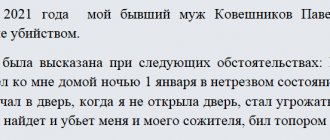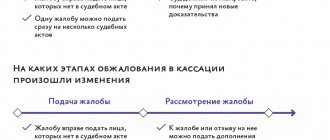The local police commissioner is the representative of law enforcement authorities “closest to the people”. It is to him that people complain in almost all cases of life - the apartment is flooded, the door is damaged, a dog has bitten, noise from neighbors at night, etc. In fact, the district police officer actually has powers that allow him to influence offenders. As part of his duty, he is obliged to prevent any violation of the law and has the right to collect documents, explanations, and make decisions on sending materials to the court and investigative authorities.
At the same time, in many situations the district police officer is approached on issues in which he is incompetent. When you really should ask for help from the local police commissioner and how to do it correctly - read our article.
What is hooliganism from a legal point of view?
In the text of Art. 213 of the Criminal Code of the Russian Federation one can find the following definition:
Hooliganism is a gross violation of public order, expressing clear disrespect for society.
The following must be kept in mind:
- In this case, a gross violation of public order means any actions that cause significant harm to such order (for example, disruption of a mass event or disruption of transport);
- A mandatory sign of criminal hooliganism is the use of weapons or objects used as weapons - this could be, for example, a baseball bat, an ax or a piece of rebar (an exception is possible only if we are talking about hooliganism based on racial, political or religious enmity);
- Another distinctive feature of hooliganism is that this crime is committed publicly and openly - for example, in the presence of visitors to public places;
- The crime is considered completed from the moment the hooligan acts are committed.
Types of hooliganism in the Criminal Code of the Russian Federation
The qualifying signs of hooliganism are provided for in Part 2 of Art. 213 of the Criminal Code of the Russian Federation:
- Hooliganism on public transport (land, water, air);
- Hooliganism motivated by hatred towards any social group;
- Hooliganism motivated by political, ideological, racial, national or religious hatred or enmity;
- Hooliganism with the use of weapons (or objects used as weapons);
- Hooliganism associated with resisting a person performing duties to protect public order;
- Hooliganism associated with resistance to a representative of authority;
- Hooliganism committed by a group of persons by prior conspiracy;
- Hooliganism committed by an organized group;
- Hooliganism committed with the use of explosives or explosive devices.
Hooliganism and petty hooliganism: what is the difference?
In accordance with the Resolution of the Plenum of the Supreme Court of the Russian Federation “On judicial practice in criminal cases of hooliganism and other crimes committed out of hooligan motives”, illegal actions that were committed:
a) by persons not bound by a preliminary conspiracy and who did not use weapons, b) not for reasons of political, racial, national or other hatred or enmity
do not form a crime under Art. 213 of the Criminal Code of the Russian Federation. If there are grounds for this, such actions can be qualified as petty hooliganism (Article 20.1 of the Code of Administrative Offenses of the Russian Federation).
Examples of petty hooliganism:
- Obscene language in a public place;
- Bad behavior;
- Damage and/or destruction of someone else's property;
- Discharge of natural necessities in public places;
- Telephone hooliganism, etc.
How to submit a UUP application
You can report illegal behavior directly during the rounds, if, for example, the local police officer knocked on your door. To write or not to write a statement is everyone’s business. We believe that if your neighbors have created inconvenience for the first time, you can contact the local police officer orally and ask him to conduct a preventative conversation with the offender.
If complaints against the same person are repeated, a written appeal must be drawn up.
A written application can be submitted:
- to the duty station of the Ministry of Internal Affairs . If the applicant asks to understand the situation with beatings, damage to property, etc., then such an appeal will be registered under a number in a special register of crime reports and submitted to the district police officer for permission;
- at the reception at the UUP - as we have already written, the reception schedule is always on the sign of the stronghold or on the website of the regional Ministry of Internal Affairs. You can come at the specified hours and tell about what happened, and here they can accept a complaint (statement) from you;
- a written appeal can be placed in a special box (it is usually attached at the entrance to the strong point) or even sent by mail;
- via Internet reception.
Citizens who know the mobile phone number of a precinct police officer can call him, summon him or report what happened. If this is some kind of clarification (for example, when the UUP is already working on the application), then telephone communication is acceptable. If you are going to report a violation of the law by phone, it is still better to meet with a police representative in person to record the important message officially. A telephone conversation, as they say, “cannot be added to the case,” and if the police fail to act to solve the crime, the applicant will then have nothing to refer to .
How to write a statement about hooliganism in 2019?
Are you planning to draw up and file a criminal complaint yourself? Then do not forget that such a statement must indicate:
- Name of the territorial police department;
- Full name and title of the head of the department;
- Full name of the applicant (please note - according to Article 141 of the Code of Criminal Procedure of the Russian Federation, an anonymous statement to the police cannot serve as a reason for initiating a criminal case);
- The applicant's address and telephone number;
- Information about the crime/offense committed;
- The applicant’s demands (for example: “I ask you to conduct a check on the facts I have indicated, identify all the guilty persons involved in the case and initiate criminal cases against Ivanov I. I. born in 1990 and other guilty persons in accordance with the Criminal Code of the Russian Federation”);
- Date of contact with the police.
Note! The application must be signed either by the victim himself or his legal representative.
Typical mistakes when filing a police report:
- The application is not legible - for example, it is written in illegible handwriting or contains too many errors;
- Lack of name, contact details or signature of the applicant;
- Excessive or, conversely, too brief statement of the circumstances of the case;
- The presence of obscene expressions or threats in the text of the application;
- Appeal to the wrong address: for example, the applicant submits a statement of hooliganism not to the police, but to the prosecutor's office.
NTVP "Kedr - Consultant"
LLC "NTVP "Kedr - Consultant" » Services » Legal consultations » General civil issues » How and to whom to correctly draw up an application for criminal prosecution for battery and hooliganism
On 06/02/2014, applicant P., driving his Renault Logan car outside the city in SNT “ХХХ”, in accordance with the traffic rules, overtook a Daewoo Matiz car on the left side. Having stopped at SNT "XXX" he heard someone honking from behind him. Turning around, he saw that he was being pursued by a Daewoo Matiz car, which he had previously overtaken. A woman jumped out of the car and immediately started screaming on why he dared to overtake her, because. because of this, she was forced to drive in a strip of dust. After this, the woman began hitting the windshield of the Renault Logan car with her hands. P., getting out of the car, tried to explain to her that she did not have the right to touch other people’s property, much less spoil it. The man tried to hold her back with his hands, but the woman hit him in the face several times and scratched his forehead with her nails. After that, a second woman jumped out of the Daewoo Matiz car and began hitting P. with a milk carton, which broke due to the blows and spilled all over the man’s clothes. Then the woman threw a cobblestone at P., causing a superficial wound to appear on the victim’s left cheek. After this, both women inflicted numerous beatings on the man’s back, chest and arms, causing P. to have bruises and abrasions in the above-mentioned places. Subsequently it turned out that in the car there were gr. T.T.A., born in 1976 and her mother gr. T.T.N., born 1955 This incident was witnessed by the chairman of SNT “XXX” B.G.Yu. and the owner of the SNT “XXX” plot R.K.M.
After the incident, P. called the police to the scene, who recorded beatings, as well as damage to the windshield of the car. Having written a statement to the police regarding the fact of the beating and a statement to attest to the fact of damage to the windshield of the car, the victim went to the traumatology department and the forensic medical examination department, where his injuries were recorded.
The police issued a resolution dated June 11, 2014, refusing to initiate criminal proceedings against P. due to the lack of corpus delicti in accordance with paragraph 2 of Part 1 of Art. 24 of the Code of Criminal Procedure of the Russian Federation and invited the victim to contact the magistrate with an application to initiate a criminal case as a private prosecution against gr. T.T.A. and T.T.N. according to Art. 116 part 1 of the Criminal Code of the Russian Federation.
P. appealed to the magistrate (full name, district, precinct) of Izhevsk with a statement to initiate a criminal case as a private prosecution against T.T.A. and T.T.N. for intentional battery, as well as the recovery of moral damages in the amount of 10,000 rubles.
By a resolution of the magistrate (full name, district, site) of Izhevsk dated October 16, 2014, the application was returned to P. due to the fact that the victim’s application does not contain a copy of the application for the person held accountable, which is a violation of Part 5 of Art. .318 Code of Criminal Procedure of the Russian Federation.
Having eliminated the shortcomings of the application, P. again filed an application with the court.
By resolution of the magistrate (full name, district, site) of Izhevsk dated October 27, 2014, P.V. Povarnitsyn. The application was refused to be accepted for processing due to the fact that the application did not indicate the place where the crime was committed, and there was no connection to the house, which is a violation of Parts 5 and 6 of Article 318 of the Code of Criminal Procedure of the Russian Federation.
In an oral conversation, the judge informed P. that the victim needed to file an application not under Part 1 of Art. 116 of the Criminal Code of the Russian Federation, and according to Part 2 of Art. 116 of the Criminal Code of the Russian Federation for its subsequent transfer to the police, since the specifics of private prosecution cases are quite difficult, because in this case, the victim himself will have to support the accusation.
Doubting his legal literacy and wanting to fairly punish the perpetrators, applicant P. sought legal help.
The applicant's questions: How and to whose address should one correctly draw up an application for criminal prosecution for battery and hooliganism?
Do law enforcement agencies act lawfully in refusing to initiate criminal proceedings against a victim, and what method of bringing criminal charges in this case is the most preferable?
Lawyer's answer.
As a result of the conversation, the circumstances and documents in the case were clarified, in particular, whether there were witnesses to this incident, whether an appeal was filed against the decision of the Magistrate dated October 27, 2014, a copy of the application to initiate a criminal case as a private prosecution with attachments; copies of decisions of the magistrate dated 10/16/2014, dated 10/27/2014
According to Part 1 of Art. 20 of the Code of Criminal Procedure of the Russian Federation, depending on the nature and severity of the crime committed, criminal prosecution, including charges in court, is carried out in public, private-public and private. According to Part 2 of Art. 20 of the Code of Criminal Procedure of the Russian Federation, criminal cases of crimes under Art. 115 part one, 116 part one, 128.1 part one of the Criminal Code of the Russian Federation are considered criminal cases of private prosecution, initiated only at the request of the victim, his legal representative, with the exception of cases when this crime was committed against a person who, by virtue of being dependent or helpless condition or for other reasons cannot protect their rights and legitimate interests. Thus, the crime provided for in Part 1 of Article 116 of the Criminal Code of the Russian Federation refers to cases of private prosecution, in which a criminal case is initiated only at the request of the victim or his legal representative.
According to Part 1 of Art. 21 of the Code of Criminal Procedure of the Russian Federation, criminal prosecution on behalf of the state in criminal cases of public and private-public accusations is carried out by a prosecutor, as well as an investigator and an interrogating officer.
From this we can conclude that the provisions of Part 2 of Art. 116 of the Criminal Code of the Russian Federation relate to cases of private prosecution, in which the investigation should be carried out by law enforcement agencies, and not by the victim himself. In addition, the injured P. is not one of those persons who, due to a dependent or helpless state or for other reasons, cannot protect their rights and legitimate interests. Article 115 of the Criminal Code of the Russian Federation talks about the intentional infliction of minor harm to health, causing a short-term health disorder or a minor permanent loss of general ability to work. However, a short-term health disorder or a slight permanent loss of general ability to work is usually understood as being in a medical institution, a slight loss of limb function.
Since P. did not have a short-term lack of health or its permanent loss, the police authorities quite rightly classified this crime as a case of private prosecution in accordance with Part 1 of Art. 116 of the Criminal Code of the Russian Federation, according to which a criminal case is initiated only at the request of the victim.
According to paragraph 1 of Article 116 of the Criminal Code of the Russian Federation, beating or committing other violent acts that caused physical pain, but did not entail the consequences specified in Art. 115 of the Criminal Code of the Russian Federation.
However, the question arises why the police classified this crime under Part 1 of Art. 116 of the Criminal Code of the Russian Federation, and not under Part 2 of Art. 116 of the Criminal Code of the Russian Federation - beatings with hooligan motives and thereby, on completely legal grounds, issued a decision to refuse to initiate a criminal case in accordance with paragraph 2 of Part 1 of Art. 24 Code of Criminal Procedure of the Russian Federation? This circumstance forced P. to turn to the magistrate with a statement to initiate a criminal case as a private prosecution.
In the lawyer’s opinion, the police did not take into account the fact that P. was not familiar with T.T.A. and T.T.N. However, beatings for hooligan reasons have a broader focus; in particular, they are associated with a violation of public order, expressed in clear disrespect for society and its social foundations. The decisive factor here is the direction of intent. T.T.A. and T.T.N. committed a crime against a specific driver who they thought had illegally overtaken, and not against any passerby. In this situation, the offenders did not show obvious disrespect for society by their act, as would be the case if the victim was clearly a stranger.
From the above it follows that the actions of the police authorities, who refused P. to initiate a criminal case under Art. clause 2, part 1, art. 24 of the Code of Criminal Procedure of the Russian Federation and qualifying this crime under Part 1 of Art. 116 of the Criminal Code of the Russian Federation are lawful, since Part 1 of Art. 116 of the Criminal Code of the Russian Federation refers to criminal cases of private prosecution, initiated only at the request of the victim or his legal representative. In this case, the magistrate’s point of view is that P., in order to initiate a criminal case, must send an application to the magistrate in accordance with Part 2 of Art. 116 of the Criminal Code of the Russian Federation for its subsequent transfer to the police is untenable. If these conditions are met, the police will again refuse P. to initiate a criminal case under paragraph 2 of Part 1 of Art. 24 Code of Criminal Procedure of the Russian Federation.
In this situation, P. needed to correctly draw up a statement in compliance with the requirements of Art. 318 Code of Criminal Procedure of the Russian Federation.
After checking P.’s application, the lawyer proposed making the following changes:
— indicate your passport details in full in accordance with clause 3.1, part 4, art. 318 Code of Criminal Procedure of the Russian Federation;
- add references to Part 1 of Art. to the text of the application. 116 of the Criminal Code of the Russian Federation and Art. 147 of the Code of Criminal Procedure of the Russian Federation, which the victim did not indicate in the statement;
- in the text of the application, instead of the words: “I ask you to initiate a criminal case and bring citizen T.T.A to criminal responsibility. ..." write: "I ask you to accept the case for proceedings and involve T.T.A. and T.T.N. to criminal liability for committing a crime under Part 1 of Art. 116 of the Criminal Code of the Russian Federation." The applicant was explained his right to re-apply to the magistrate within the 2-year statute of limitations, as well as the consequences of filing an application after the expiration of the statute of limitations, since in this case the court would quite reasonably rule on the refusal to accept the application for proceedings on based on clause 3, part 1, art. 24 of the Code of Criminal Procedure of the Russian Federation due to the expiration of the period for bringing to criminal responsibility.
In case of another refusal, it must be appealed to the district court of Izhevsk through a magistrate within 10 days from the date of issuance.
Thus, the police lawfully refused P. to initiate a criminal case under paragraph 2 of Part 1 of Art. 24 of the Code of Criminal Procedure of the Russian Federation and suggested that the victim contact the magistrate with a statement to initiate a criminal case as a private prosecution in accordance with Part 1 of Art. 116 of the Criminal Code of the Russian Federation. The judge's arguments about the possibility of reclassifying this case from private to public by submitting an application to the magistrate to initiate a criminal case under Part 2 of Art. 116 of the Criminal Code of the Russian Federation for subsequent investigation of the case by the police are untenable, since the qualifying features determine this crime precisely under Part 1 of Art. 116 of the Criminal Code of the Russian Federation. Since by Part 1 of Art. 116 of the Criminal Code of the Russian Federation refers to criminal cases of only private prosecution; they are initiated only at the request of the victim or his legal representative. The police have no grounds to initiate a criminal case under this article. To attract guilty persons, the Code of Criminal Procedure of the Russian Federation provides only for filing an application to initiate a criminal case as a private prosecution. In this case, a preliminary investigation is not carried out, and P. will be forced to independently prove both the fact of committing a crime and the guilt of a specific person, bypassing the mandatory procedural stages of pre-trial proceedings in other situations (in cases of private-public and public prosecution). Thus, in accordance with the current legislation, the magistrate’s court (district, site) of the city of Izhevsk UR is obliged to accept the application of the PV. and bring the perpetrators to criminal liability under Part 1 of Art. 116 of the Criminal Code of the Russian Federation.
Skvortsov Alexey Valerievich, consultant of the legal department of the FSS for sustainable development, 8-950-175-32-59
Consultation given in November 2014.
Where to file a complaint about hooliganism in 2019?
In accordance with the current legislation of the Russian Federation, a statement about a crime or offense can be submitted to any territorial body of the Ministry of Internal Affairs of Russia - regardless of both the place of residence of the victim and the place where the crime was committed.
That is, if a Moscow resident becomes a victim of a crime while on vacation in Sochi, he has the right to file a complaint with the Moscow OVD (Internal Affairs Department).
How to find the nearest police station? The necessary information can be found on the official website of the Ministry of Internal Affairs in your region:
Departments of the Ministry of Internal Affairs of Russia in Moscow districts
Directorates and departments of the Ministry of Internal Affairs of Russia of the regions of St. Petersburg
Police departments of the Russian Ministry of Internal Affairs for the city of Krasnodar
Basic rules for registering statements of crimes and offenses in internal affairs bodies:
- Applications from citizens are accepted 24 hours a day;
- Waiting areas at the territorial police department must be equipped with tables and chairs - to make it possible to draw up a statement;
- At the request of the applicant, police officers are required to provide him with paper and pen;
- Each accepted application must be registered in a special accounting book.
Note! The decision to initiate a criminal case (or to refuse to initiate a criminal case) must be made within 3 calendar days from the date of registration of the statement of crime.
Powers of the district police officer
Officially, the district police officer is called the district police commissioner, abbreviated as UUP.
Its powers are quite extensive and are regulated by the Federal Law of the Russian Federation “On the Police”, as well as by separate Orders of the Ministry of Internal Affairs: dated January 17, 2006 No. 19 “On the activities of internal affairs bodies in preventing crimes” and dated December 31, 2012 No. 1166 “Issues of organizing the activities of local police commissioners " The specific rights and responsibilities of the UUP are defined in the job description. Precinct officers are required to take part in maintaining law and order, they help detect a wanted criminal, take measures to solve crimes and offenses, and also carry out preventive work with persons prone to committing crimes. UUP are required to check compliance with the rules for storing weapons at the place of residence.
Each UUP is assigned an administrative site where it conducts its work. The boundaries of the precinct are determined by the leadership of the district police authority. Usually 2-3 district police officers work at one site, but there may be only one UUP.
Information about who exactly is the local police officer in a particular administrative area can be obtained on the official website of the regional Ministry of Internal Affairs or directly at the stronghold. The address of the support point (in fact, the UUP workplace is located there) can also be clarified at the Ministry of Internal Affairs, as well as the reception hours.
One of the activities of the district police officer is preventive (door-to-door) visits. In this way, a police representative gets acquainted with citizens who live on the territory of the administrative district, finds out from them whether there are complaints, grievances, etc.
Usually the district police officer knows the names of persons released from prison, as well as those sentenced to punishments not related to imprisonment. He also knows local alcoholics, rowdies and drunkards who constantly violate public order - these are frequent guests of KAZ - administrative detention cells.
When a policeman goes around residents for preventive purposes, he must be in uniform, must introduce himself and show his identification in expanded form .
A police officer can enter a residential premises against the will of the owner only in exceptional cases, if, for example, there is a threat to the life of a person or to prevent a serious crime.











